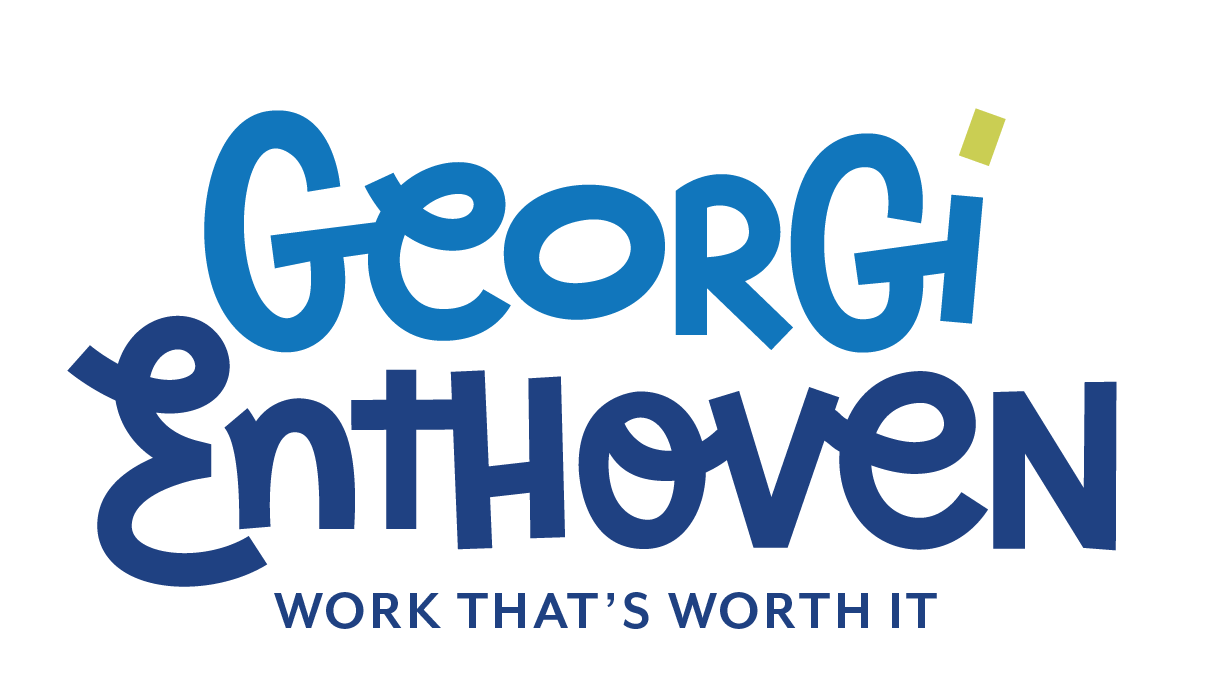Write the [damn] book, a peek backstage!
[Oh] Dear new authors and anyone else interested,
As many of you know, I’m the brave first-time author of Work That’s Worth It. This non-fiction book is designed to help young professionals build careers that are rewarding for themselves and beneficial to the world.
Now that my book is with my publisher, I’ve completed the first major phase of my book journey (yay!). Before the details of this writing process become a dusty memory, I want to capture and share 10 key reflections that might be helpful for future authors, especially those venturing into the world of non-fiction.
I’ll dive into the publishing phase when I reach that point. For now, while everything is still fresh, here are some things I learned…
1. The Book Chose Me
This might sound strange, but writing a book wasn’t something I actively chased. Rather, while meandering the streets on a solo vacation in Lisbon, Portugal, with the hopes of re-discovering my own rhythm post-Covid-life, “my” book knocked on my door. (It’s a thing!) Work That’s Worth It felt like a sudden revelation. My guard was down, and I was able to make space for big ideas and dreams.
I’m not a religious person, but if I was, I know who I would thank. Having this impactful “download” experience is not singular to me, as I’ve since learned it’s what most creators will experience in different forms.
Elizabeth Gilbert, in her bestselling book Big Magic, writes: “Ideas are alive, that ideas do seek the most available human collaborator, that ideas do have a conscious will, that ideas do move from soul to soul, that ideas will always try to seek the swiftest and most efficient conduit to the earth (just as lightning does).”
But what if the timing is all wrong? If you look the other way, the message will find another conduit, don’t worry. Rick Rubin, in The Creative Act, notes: “If you have an idea you’re excited about, and you don’t bring it to life, it’s not uncommon for the idea to find its voice through another maker.”
But I answered the call. I grabbed hold of the spark because of the clarity I received [from the download], and the timing felt perfect. And the right doors seemed to open up. This kind of serendipity is rare and feels almost magical, and I couldn’t ignore the pull to start writing.
2. You Have to Love Your Topic – A LOT!
Writing a book is all-consuming – at least, that’s been my experience. As a mother of three lovely humans, I understand the dedication required to nurture and raise a child (or three). You carry so much responsibility 24/7, swinging from exhausted to exhilarated and everything in between. But it’s a great privilege, and it gives your life so much meaning. Similarly, your book will need nearly the same level of commitment and care. Hence, “book-baby” is a term.
When it comes to picking your topic, think carefully. You need to be prepared to dedicate the next ~10 years of your life to this subject. Awake and asleep. Your book will become a central part of your life, and you’ll need to be enthusiastic about discussing it with anyone who will listen for many years.
I recognized early on that I was ready for this commitment. However, it’s important to consider whether you truly want to immerse yourself in this topic for the long term. It’s better to evaluate this before your book’s conception, rather than investing significant time and resources only to find that the topic is no longer engaging, too challenging, or outdated.
(If you’re uncertain, I suggest starting with a podcast. This flexible format may be a good way to gauge your interest and discuss various angles to see what catches and comes alive.)
3. Your Book is Actually a Business
I said yes to writing a book, and then I realized I had really given thumbs up to starting a business: not by choice, but because of economics.
It costs a lot to put a book together. To avoid your book turning into a “money pit”, you need to reimagine it as a loss-leader for something greater to generate additional income beyond book sales. The statistics are sobering: in 2022, over 1.4 million books were self-published via Kindle Direct, with the median number of copies sold being about 250 per book. For traditionally published books, the figure is around 2,000-3,000 copies.
Simply put, the math doesn’t add up for most authors. So you need to sell a higher ticket item on the back-end of your book that makes it financially worthwhile. That could be speaking, webinars, courses, coaching, memberships, or merchandise. Think about your book as the foundation of a broader business model that includes multiple revenue streams.
4. Beware of Book Vultures; But Recognize it’s a Team Sport
For me, writing a book seemed romantic at this stage in my life, much like entrepreneurship did early in my career. It almost requires some naïveté, and if you knew at the beginning what you discover later in the journey, you might not have moved past that lightning bolt moment.
But if you decide to stick with it, beware of those promising to make your book a bestseller through retreats, courses, or coaching. I found many “book helpers” to be big on promises, and light on worthwhile content to actually move you forward. Therefore, carefully choose where you invest your time and resources.
Most authors are beginners, and a significant 80% are “one-book wonders,” as noted by The Guardian. This means that most of us are inexperienced and need a team. Identify your strengths and find a squad to help with other parts of the puzzle. Your team could include an agent, publisher, editor, ghostwriter, web designer, virtual assistant, social media expert, and more. You need both a team and the money to pay them.
Having trusted advisors and professionals by your side can greatly impact the quality and success of your book.
5. Writing is Incredibly Inefficient; Plus, AI Enters the Scene
Writing a book is an inherently inefficient process. Imagine a chef discarding 90% of their meals, or a lawyer discarding 90% of their hours. Whether it’s due to being a newbie, or the nature of writing, you’ll likely produce a massive amount of content, much of which will be cut down in the final draft. Expect to write over a million words that will eventually be trimmed into around 60,000 words in the final version (thanks to your editors!). Lesson: Get comfortable tossing out your day’s work!
Now, the scoop on AI. For a moment in time when ChatGPT was launched, I thought that I may very well be the last person actually writing a book. For me, writing my book has been about getting the message I downloaded from the universe into words. It’s also been about honoring the “creative act” that I signed up for and have enjoyed deeply. No AI program has that information. Further, just like I would not have liked someone to hand me my children already raised (although some days that could have been tempting!), the creative writing process is so life-enriching and worthwhile.
That said, my favorite AI tool has been Claude.ai which has been invaluable for brainstorming, researching, and managing tasks like email marketing and social media.
6. Write for One Person, and Trust Your Gut
It took me a year to cross the finish line of the first version of my book. Truthfully, I was so relieved to be done, but I did not feel 100% confident in what I had put together. My [first] editor thought it was ready, but my gut told me it needed feedback from target market test readers. And my publisher agreed.
I hand-picked 12 relevant people to read my book and share comments, which was a gift. Feedback from my friend, who teaches my target audience, was especially insightful. She was not clear on “who the book was specifically for” and “what I was telling them to do.” Ouch! Her questioning led me to rethink my approach. Initially, I targeted young professionals between the ages of 18-35, but that was too broad, especially for my topic: careers.
Through this feedback, I began the rewrite. At this time, another emerging author shared with me a key resource that she’d found invaluable, Brand Builders Group. I joined their community and they helped me hone in on the person I wanted to help most of all. I named her Grace and defined her main issue in one word as Misalignment, with my solution being Intentionality.
Focusing on a specific target audience helps craft a more impactful message and gain traction, especially for beginner authors. Determining your ideal reader early on is a valuable exercise that keeps your efforts focused.
Note: Selling over 5,000 copies of your book is considered a success in the book world. It may get you a meeting with a traditional publisher your second time around. There are way more than 5,000 Grace-like characters for me to connect with, so you are actually writing for all the Grace’s out there.
7. Sleepless Nights with Imposter Syndrome at Your Door
Imposter syndrome is a significant part of the writing journey, and I’d be remiss if I didn’t warn you. The public nature of publishing can amplify self-doubt and vulnerability; it’s a huge gamble with great odds against your success. Every now and again I experience a huge wave of “What am I doing?”. Elizabeth Gilbert describes this feeling in Big Magic: “I have never created anything in my life that did not make me feel, at some point or another, like I was the guy who just walked into a fancy ball wearing a homemade lobster costume.”
To cope with these feelings of (very normal) self-doubt, I focused on consistently making progress, moving one step forward each day and actively deciding to have faith in the process.
Shifting my mindset was also crucial. Rick Rubin’s advice—to prioritize inspiration first, then yourself, and finally the audience—helped me stay focused on the creative process within me, rather than use my marketing instincts to write for a particular reader-outcome. Otherwise, you can easily lose the magic. I trusted his advice and let go worrying about how it’s going to land, and focused on my inspiration.
8. [Unfortunately] You’ve Got To Build a Following – Even if it’s Cringe!
This has been my least favorite part: building a social media presence. But it’s been a task I’ve had to undertake to build an audience and engage future possible readers.
While I see the great value in building a community and I desire engagement with my target audience, I find the demands of social media overwhelming and distracting (especially as an introvert). Truthfully, time spent building social media channels feels like a distraction diluting my focus.
By the way, to work with a traditional publisher, a well-established audience and engaged social media following is often expected. Since I am new to building my audience, this was not a realistic option for me. But I did want the support and structure of a publishing house (rather than self-publishing), so I chose to work with GreenLeaf Book Group, a hybrid publisher where I could get the resources I needed whilst maintaining the freedom to make the decisions that felt aligned with my vision.
I’ve learned that building a following is about more than just marketing; it’s about creating a community around your ideas and engaging with readers who resonate with your message. I accept that it is a necessary evil for now.
9. There Are No Competitors, Only Collaborators
In the world of authorship, there are no real competitors. I experienced a moment of panic when I saw other books on similar topics, fearing someone had beat me to it. Had they got to the download on paper before me? But the beauty of being an author is that each perspective is unique, and your creation will look different to the next.
Readers often engage with multiple books on similar subjects.
While there may be a leading book on a topic, there is room for diverse viewpoints. The books I perceived as competition didn’t cater to Grace (my reader persona) or offer the same stories and framework. Seeing a similar message in other books is actually a positive sign that we’re collaborating for a greater conversation around our message.
10. A Greater Purpose of Course
For me, my daily motivation needed to come from something greater. Money is not enough to excite me. In my book, I refer to this need as a “personal mission,” similar to having a north star or “why” (see Simon Sinek’s Start with Why).
This part for me is simple.
As I refer to in the Introduction of my book: giving up plastic straws won’t be enough. Our planet is in danger (we have just passed the 12th consecutive month to exceed the 1.5’ global warming threshold), and it’s urgent that we take action to course correct (My WHY). Using what’s left of my career hours (we have approximately 90,000 career hours each) to contribute positively to the world is a responsibility I’m up for. Helping guide young professionals (My WHO) use their career hours with alignment and intent [for good] is how I am doing it (My HOW). Through my book and platform, I aim to make a meaningful impact and show my commitment to future generations – my kids included.
This authentic vision motivates me and feels worthy of my time, even during the toughest phases of the writing journey. Writing a book is a marathon, not a sprint, and having a deeper mission sustains the passion and discipline needed to see it through.
I hope my reflections fuel your book journey. It’s a difficult birth, but with collaboration, community, passion, confidence and a greater goal, you can be a part of the 12% of authors who finish their book. Writing a book is an epic task, but I have found it to be so rewarding.
If you would like to follow along with my content, show support, or just to track my journey, please visit my website, and read my blog. Or, join our community on Instagram. I am getting used to that part, slowly but surely!
Feel free to ask me any questions you have, and share this author reflection with the writers in your circles.
Good luck to you as you write. Cheers to being brave. You’ve got this!
Best,
Georgi Enthoven
PS. Here are the resources I recommend for Phase 1
If you are not a writer, read about Joseph Cambell’s Hero’s Journey arc before you begin. People want the solutions/wisdom. Don’t dwell on the problem. (This could have been a whole paragraph, but “10 takeaways” seems like a good number, so I am sneaking it in here!)
In an effort to keep the “vultures” away, you can check this list to help you avoid scams. Be aware.
Books I mention (buy books and support other authors):
• Big Magic, Elizabeth Gilbert
• The Creative Act, Rick Ruben
• Start with Why, Simon Sinek
• The Tipping Point, Malcolm Gladwell
Partners I recommend, and tell them I sent you:
• Brand Builders Group, excellent if you need help fine tuning your message and turning your book into a profitable business. If you decide to work with them, let them know I referred you, since I will get a bonus from the referral (transparency wins). They have lots of free content too.
• GreenLeaf Book Group, my (selective) hybrid publisher (and the source of my second editor for version 2). I also liked another Hybrid Publisher called Page Two.
A few other great resources that I did not work with personally but recommend you check out:
• KN Literary for getting started, can help with creating an outline to finishing your book. Plus lots of free content.
• Gotham Ghostwriters to find the right editor or ghostwriter if you have a bigger budget. You can actually hire Barack Obama’s ghostwriter if you have the money.
• StoryBuilders to get a great book written for a first timer. I think I will start with them next time around.
Also, The OpEd Project is a terrific resource to help you learn to write an opinion piece in a major publication. It’s a great place to experiment and find your voice before writing your book, or alongside your process.
Favorite AI tool:
Claude.ai from Anthropic





